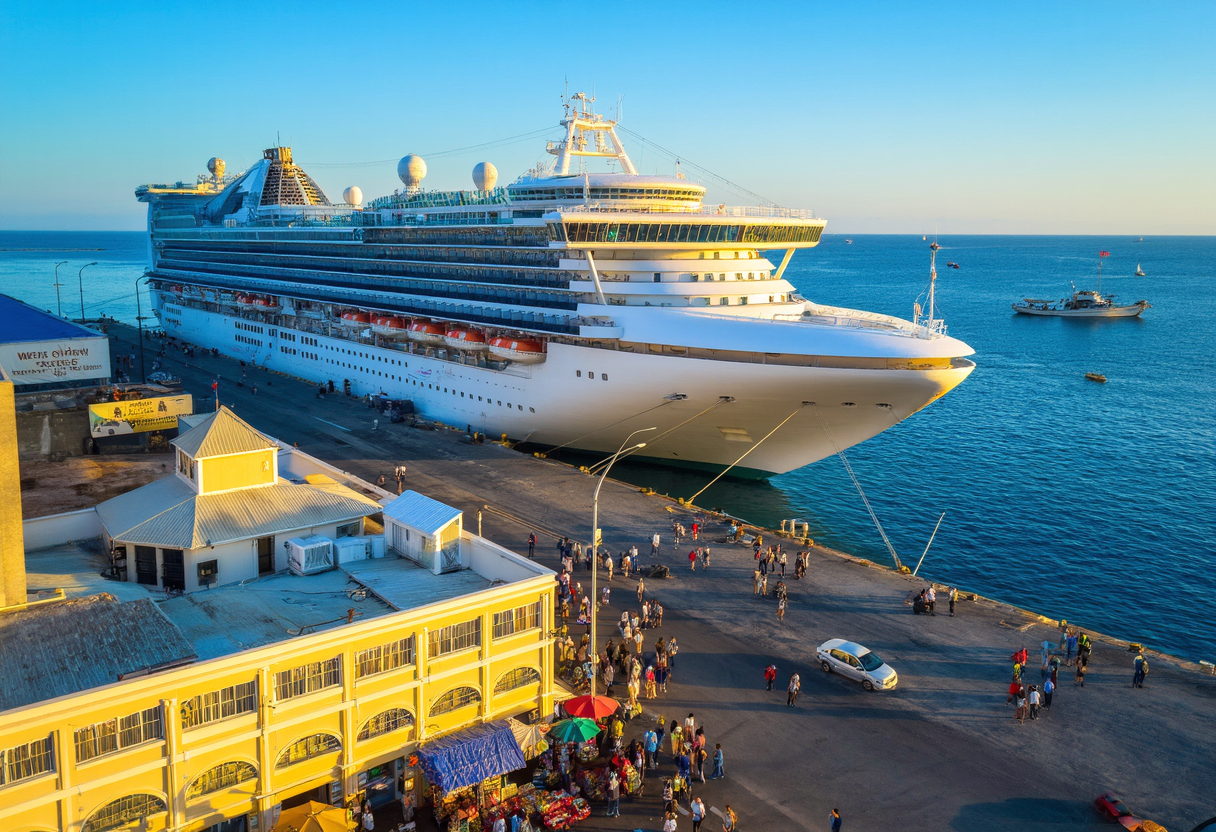Impact of Cruise Tourism on Local Economies: A Double-Edged Sword
Cruise tourism significantly affects local economies, bringing both benefits and challenges. This article delves into the economic implications of cruise tourism, examining how it can stimulate growth while also presenting potential risks for communities.
The Economic Ripple Effect of Cruise Tourism
Cruise tourism serves as a catalyst for economic development in various regions, generating revenue and creating jobs. The industry attracts millions of travelers each year, infusing local businesses with spending from passengers and crew. From restaurants to retail shops, the impact of cruise tourism on local economies is palpable. Moreover, towns with cruise ports often see a surge in infrastructure improvements, as ports and access roads are upgraded to accommodate larger vessels. However, while these benefits are significant, it’s essential to consider the possible downsides that accompany this influx of tourism. Increased traffic, environmental degradation, and price inflation are some potential issues that communities face as cruise tourism becomes more prevalent. Therefore, understanding the dual nature of cruise tourism's economic impact is crucial.
Job Creation and Economic Growth through Cruise Tourism
The economic benefits of cruise tourism are extensive, particularly regarding job creation and local investments. Many communities near cruise ports experience a surge in employment opportunities, ranging from direct jobs on cruise ships to supporting industries like hospitality and transportation. Local economies can thrive when cruise lines collaborate with regional service providers to create a holistic travel experience. This symbiotic relationship not only boosts revenue for local businesses but also encourages community engagement and participation. However, reliance on cruise tourism should be approached with caution—economic dependency can lead to vulnerabilities, especially if the industry faces downturns due to external factors, such as global crises or shifts in travel preferences. Hence, diversifying economic activities is vital for communities looking to maximize the benefits of cruise tourism while ensuring stability.
Environmental Concerns Associated with Cruise Tourism
Despite the economic advantages, cruise tourism also raises valid environmental concerns. The influx of visitors can strain local resources and ecosystems, compromising the very attractions that draw tourists in the first place. Areas susceptible to over-tourism may experience pollution, resource depletion, and habitat loss. Additionally, the presence of large cruise ships can cause pollution in the waters they navigate, prompting the need for stringent regulations. Addressing these environmental challenges requires collaboration among cruise lines, local governments, and environmental organizations to create sustainable practices. By adopting environmentally friendly measures, cruise tourism can ensure that it enhances rather than diminishes the natural beauty and cultural heritage of port destinations.
Community Perspectives on Cruise Tourism
The reception of cruise tourism varies greatly among local communities. While some embrace the economic opportunities that come with increased tourism, others express concerns about its impact on their way of life. Community members may grapple with issues such as overcrowding, cultural dilution, and the potential negation of local identity as cruise lines prioritize profit. Engaging in open dialogue with local residents, showcasing their perspectives, and involving them in decision-making processes can foster goodwill and promote responsible tourism practices. It is crucial for cruise tourism to respect and integrate local culture instead of overshadowing it. Community-driven initiatives can lead to sustainable tourism development while preserving local heritage and ensuring that the benefits of cruise tourism are equitably shared.
Strategies for Sustainable Cruise Tourism
To reconcile the benefits and challenges of cruise tourism, a range of sustainable strategies must be implemented. Cruise lines can work with port authorities to establish capacity limits to manage tourist flow and mitigate the impact on local communities. Moreover, implementing eco-friendly practices such as waste management systems, carbon offset programs, and partnerships with local conservation efforts can enhance sustainability in cruise tourism. These strategies promote responsible travel while creating economic opportunities. By prioritizing the well-being of host communities and ecosystems, the cruise tourism industry can work toward minimizing its negative impact while maximizing economic benefits.
The Future of Cruise Tourism and Its Economic Implications
As the cruise tourism industry navigates its future, communities must remain vigilant about its economic implications. By embracing sustainable practices that benefit both the local economy and environment, there exists a path for continued growth and positive impact. It’s essential for cruise lines to engage meaningfully with communities to foster collaboration and ensure that tourism initiatives align with local interests. Moreover, evolving industry trends may shape what cruise tourism looks like going forward, with increased consumer demand for responsible and meaningful travel experiences. Therefore, establishing a balance between economic growth and social responsibility will fundamentally influence the trajectory of cruise tourism and its contributions to local economies.
